
Out of Office – review of Super Design online talk
A review of Out Of Office – a digital panel discussion sponsored by Flokk, featuring a range of workplace experts based in Australia, discussing the changing face of the workplace, and how the office interior industry is adapting to suite the changing needs of the global workforce.
- Events
- Online Events
- Flokk News
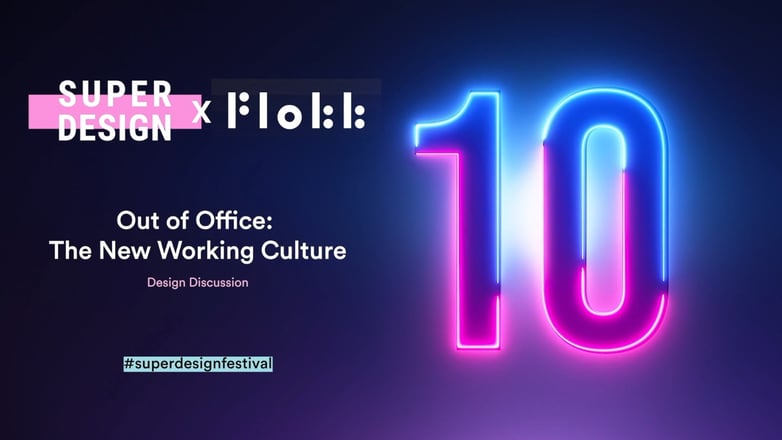
On the opening day of Super Design 2020, four workspace experts took part in an online discussion examining the new working culture we are having to come to terms within our Covid and post-Covid world.
“Out Of Office” sponsored by Flokk was chaired by Indesign acting-editor Jan Henderson, featuring panellists Simon Pole of Unispace, Sue Fenton of Woods Bagot, Kirsti Simpson of Hassell and Nic Brunsdon of Nic Brunsdon architecture practice.
The discussion kicked off with the panellists giving their opinion on what lasting change would there be to the way we work around the world.
Simon: I think what we’ve learnt is that we had priorities in certain areas of our life structured in a certain way to meet all the pre-Covid ways that we did business, and that’s all been now turned on its head. We’ve relied on putting a lot of things in one place, as we started to move the work-life together and I think we now have time to possibly re-stretch that back out, or perhaps reassess what our priorities are, and how we can work differently in the future.
Kirsty: We’ve done a lot of research on the topic of lasting change, and we’ve started to plot the lasting impact of covid-19, from a degree of impact and longevity, as of course, those factors are quite different. In our view, the issue around and the pursuit of social distancing will be those that are largely resolved with time or with a vaccine.
The issues that I suppose will have the greatest potential to have both long term impact and generate the most lasting change will be the ones that largely drive a redefinition of culture and corresponding redefinition of work. So I think we will likely see the development of a new workplace ecosystem, that involves a leadership transformation and a culture transformation and a ‘place’ transformation.
Read more - How do people want to work? Exploring the data with Leesman Index
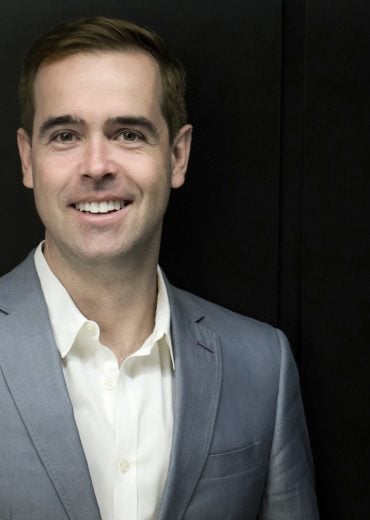
Simon Pole - Global Director, Design, Unispace: Simon has over 25 years’ experience leading exceptional and complex projects with clients globally.
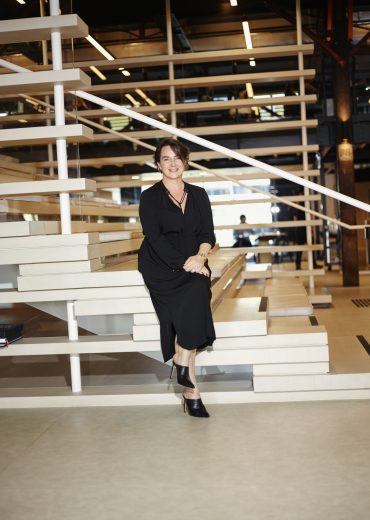
Kirsti Simpson -Principal / Sector Leader - Commercial & Workplace, HASSELL: Kirsti is an internationally recognised specialist in workplace design who has earned a place on numerous boards
The panellists then expanded on the idea of a shift in work culture, and the overall development of a new workplace eco-system
Sue: Being heavily involved in projects at the time of transitioning to working from home, I was astounded at how people adapt so quickly. Trust and leadership were so important in this process, and I’m hoping that will be something that will drive the changes we will see in the workplace of the future.
We’re going to see the office more as a place where we get a sense of belonging, where we come together. Focused things are going to be done at home as it has proven to be successful.
Nick: It’s already becoming integrated into the way we think about spaces, this public consciousness, of what we need and want from our physical environments in this Covid and post-Covid world. I just had a client call yesterday and normally you have the brief of the kitchen, living, dining bedrooms, etc, but just as big in there they had these two flex spaces to accommodate these sort of things.
The biggest change though is the idea of individual agency - there’s no longer this one size fits all approach of what office and workspace are. As the individual, you’ve been able to choose what suits you best, and I think that’s actually been quite exciting – seeing those things actually come back to bigger corporate structures and how that can be facilitated.
The meteoric rise of working from home during the pandemic led the panel to be asked about their thoughts on what the future holds for this way of working.
Kirsty: There’s no question that flexibility is going to be something with us forever – that will be one of the most lasting changes. It does have its challenges, in areas of innovation, collaboration, effectiveness, efficiency and the connectedness of teams.
The requirement for an office is very clear, and it needs to perform a certain role, but I do think the idea of working from home, and all of the comfort and privacy, both acoustic and visual, will be something that will form part of a bolder strategy for the workplace in the future.
Simon: For most corporations, not all, the home was never really a legitimate part of the workspace. Now that it is – and it was forced upon us for most – we need to gear up for it. From our data, in this particular region, there’s more than 20% of us that can’t work effectively from home.
What we’ve been doing and what we need to recognise as designers – over the years we’ve been putting more and more ‘stuff’ into the office – wellness, running tracks, gyms, - to try to keep people in the office for longer. Maybe what this has given us is an opportunity to check that.
Instead of clustering all our work-life together, we could probably now, with the technology, stretch that out a bit more, thinking about fringe workspaces and what we actually go into the city for, reset what the office can actually do for us.
Read more - Office Talk: Workplace learnings from the pandemic
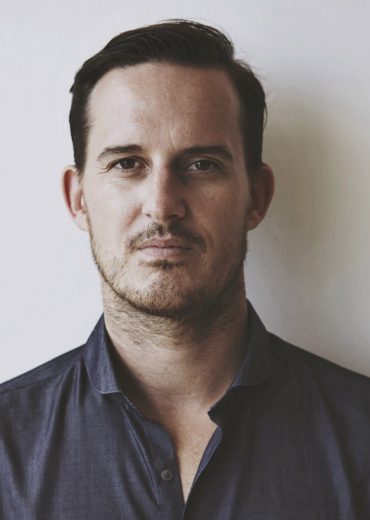
Nic Brunsdon - Director, NIC BRUNSDON & Director Spacemarket: Nic's architecture studio is much awarded and operates locally and internationally from Perth, Western Australia. He has worked on policy formation and development at all three levels of government.
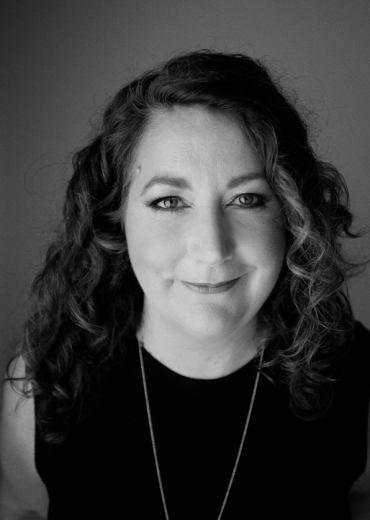
Sue Fenton - Senior Associate, Woods Bagot: Sue has over 20 years of Interior design leadership experience, working across all sectors of the Global studio. Sue creates engaging spaces that enhance our built environment, provide a sense of place and enrich the user experience.
The conversation turned from the home to the office, and if the office still has a legitimate place in the working experience
Kirsty: We know that 60% of people want to return to work 60% of the time. There’s going to be a different composition of space. The workplace fundamentally needs to be more seductive. The workplace is no longer a place you have to go to, it needs to be a place you want to go to. The whole experience of being at work and the offering of safe places to collaborate will be the primary purpose of the workplace.
Simon: What this has been able to do is it’s accelerated all of the thoughts we’ve been having over the last 10 years, have just come to play right now. The CBD is going to be a lot more flexible. Better amenity offering for when you are in the city, with more flexible environments. Maybe shorter leases come out of that, or you provide a flexible model that the asset owner can offer to make sure that the space is still full and being used because we certainly don’t want the city to die, I just think there are now other uses.
Nick: We’ve got to make sure we are not supplementing the digital experience or tools for an actual physical one. Just because something is more efficient and easier doesn’t mean that the worker is having a good time – especially when working from home. No matter how many digital tools you throw at it, a dank room with your family all yelling on top of each other is not going to be a pleasant place to work.
A lot of the conversation highlighted positive aspects that can be taken from the new ways of working.
Kirsty: There’s clearly less geo-fencing. We have access to talent from a wider geographic pool and we can keep teams very engaged in other locations where they might be working from home. It’s a very different model from a leadership perspective, but training and access to meetings have been democratised. The workplace is no longer a factory for human productivity, its more so these platforms are allowing much greater engagement and mentoring on some issues that weren’t otherwise possible. You might not have taken a team of 20 to a high profile meeting before, you now you can. From a learning perspective, it’s extraordinary.
Nick: There’s no such thing as the corner office on a zoom meeting. The hierarchies are gone, anyone feels they can speak up and get involved.
With the home clearly seen as a legitimate frontier for work now and into the future, there were a few points raised, especially on the responsibility of the employer.
Simon: There’s almost an unwritten rule that you know what good ergonomics is. In the 90s there was a lot more instruction around what good ergonomics was, but that seemed to get thrown out when laptops and beanbags came into the office space, and it was less around good ergonomics or posture. It doesn’t seem to be embedded as much.
Should we be doing more? The answer is yes. We should be helping our clients guide and understand if they don’t have an in-house team that’s responsible for this. We should actually start thinking about and legitimising the home office as one of those pieces of the ecosystem.
Sue: We should be able to claim some of our houses as a part of our workplace. There are a lot of start-up packages and a lot of larger firms are setting up people at home to make sure that they have their ergonomic and safe workplace, but let's not get carried away. The big corporate structures are very different from a lot of businesses out there working from home.
Simon: I remember we did a project in 2010 where laptops were given to everyone. The company’s power bills went down by 30% - fantastic for the company, but everyone else ended up paying for it at home. Once we get back to normal, where businesses aren’t fighting for their survival, I can see a bit of a top-up of your salary from your employer, to setup your home office.
Kirsty: We’ll see a lot of experimentation, and I think we’re all going to be investing a great deal, time and money to test and respond to these strategies.
With all the talk of change, the panellists also addressed the issue of what to expect when everything returns to normal, and will we eventually slide back to the same routines and work life as before.
Simon: We’re sculpted by the pressures around us. I think there will be more flexibly progressive workspaces in those states that have been locked down longer than those that haven’t, would be my rough assumption based on no stats just on this conversation.
Kirsty: The way we work at Hassell is fundamentally different and there will certainly be long-term change as a result of this. We certainly have not underestimated the opportunity this presents for us to completely rethink the way we work, and on behalf of our clients the way they work - How that manifests itself with the clients that we work with, we are yet to see.
Out of Office: The New Working Culture was broadcast live on 16th November 2020, as part of the Super Design Festival, which takes place online and in the physical world in New South Wales, Australia.
The full recording is now available on demand at the Super Design website. Registration is free, simply click here to sign up and view now.
Office Talk
If you want to hear more expert opinions from the interior design and architecture industry, read our Office Talk series now, where we invite a variety of professionals to share their insight into what office life will be like now, and into the future.
This might also interest you
HÅG SoFi – now available in tumbled aluminium
Extending the beauty of tumbled aluminium to HÅG SoFi — versatile,...
HÅG Tion mesh – now available
Flokk is proud to introduce a new addition to the HÅG Tion family - HÅG...
OFFECCT Circulus wins Red Dot: Best of the Best Design Award 2025
Offecct Circulus, designed by Mario Ferrarini, has been awarded the...